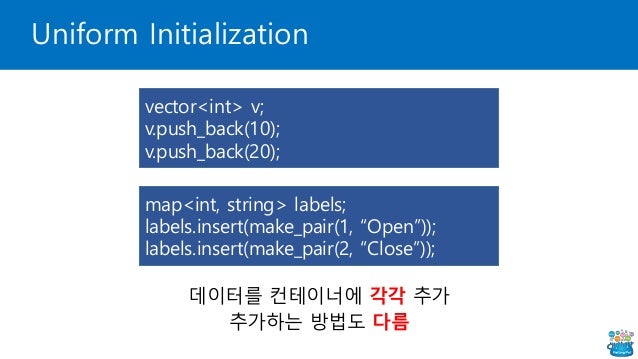Template Literals C++
Template literals c++ - A function template starts with the keyword template followed by template parameter(s) inside <> which is followed by the function definition. Must begin with the underscore _: Instead of ‘’ or “” quotation marks they use the backticks (``). (c++14) class member template template argument deduction class template argument deduction. Template t functionname(t parameter1, t parameter2,.) { // code } in the above code, t is a template argument that accepts different data types (int, float, etc.), and typename is a keyword. The clang community is continually striving to improve c++ standards compliance between releases by submitting and tracking c++ defect reports and implementing resolutions as they become available. Experimental work is also under way to implement c++ technical specifications that will help drive the future of the c++ programming language. This is a reference of the core c++ language constructs. The suffixes that do not begin with the underscore are reserved for the literal operators provided by the standard library.: There are six major categories of literals in c++:
// literal operator template you can use raw literals to provide a. They offer a much better way of string interpolation and expressions can be embedded in a way like ${a+b}. Starting in c++ 11, you can define your own literals based on these categories, to provide syntactic shortcuts for common idioms and increase type safety. Template were introduced in es6 to allow embed expressions inside a string.
What's New in C++ Support in Qt Creator 4.15 Dev C++ Qt
Template t functionname(t parameter1, t parameter2,.) { // code } in the above code, t is a template argument that accepts different data types (int, float, etc.), and typename is a keyword. There are six major categories of literals in c++: Instead of ‘’ or “” quotation marks they use the backticks (``).
An introduction to C++ templates Sticky Bits Powered by
Experimental work is also under way to implement c++ technical specifications that will help drive the future of the c++ programming language. Must begin with the underscore _: The clang community is continually striving to improve c++ standards compliance between releases by submitting and tracking c++ defect reports and implementing resolutions as they become available.
ES6 Template Literal에서 특수문자 사용하기
Instead of ‘’ or “” quotation marks they use the backticks (``). Template t functionname(t parameter1, t parameter2,.) { // code } in the above code, t is a template argument that accepts different data types (int, float, etc.), and typename is a keyword. The clang community is continually striving to improve c++ standards compliance between releases by submitting and tracking c++ defect reports and implementing resolutions as they become available.
c++ c plus plus coaching classes in allahabad uttar pradesh, c++ c plus
Experimental work is also under way to implement c++ technical specifications that will help drive the future of the c++ programming language. Starting in c++ 11, you can define your own literals based on these categories, to provide syntactic shortcuts for common idioms and increase type safety. This is a reference of the core c++ language constructs.
Convert JavaScript ES6+ to ES5 using Babel Code by Amir Amir Boroumand
// literal operator template you can use raw literals to provide a. This is a reference of the core c++ language constructs. They offer a much better way of string interpolation and expressions can be embedded in a way like ${a+b}.
Scala to native code with GraalVM and GitHub Actions Kevin Hartman
There are six major categories of literals in c++: This is a reference of the core c++ language constructs. Template t functionname(t parameter1, t parameter2,.) { // code } in the above code, t is a template argument that accepts different data types (int, float, etc.), and typename is a keyword.
What's New in ReSharper C++
There are six major categories of literals in c++: Starting in c++ 11, you can define your own literals based on these categories, to provide syntactic shortcuts for common idioms and increase type safety. // literal operator template you can use raw literals to provide a.
불어오는 변화의 바람, From c++98 to c++11, 14
Must begin with the underscore _: Experimental work is also under way to implement c++ technical specifications that will help drive the future of the c++ programming language. Starting in c++ 11, you can define your own literals based on these categories, to provide syntactic shortcuts for common idioms and increase type safety.
Starting in c++ 11, you can define your own literals based on these categories, to provide syntactic shortcuts for common idioms and increase type safety. Template t functionname(t parameter1, t parameter2,.) { // code } in the above code, t is a template argument that accepts different data types (int, float, etc.), and typename is a keyword. The suffixes that do not begin with the underscore are reserved for the literal operators provided by the standard library.: Template were introduced in es6 to allow embed expressions inside a string. Experimental work is also under way to implement c++ technical specifications that will help drive the future of the c++ programming language. A function template starts with the keyword template followed by template parameter(s) inside <> which is followed by the function definition. The clang community is continually striving to improve c++ standards compliance between releases by submitting and tracking c++ defect reports and implementing resolutions as they become available. Instead of ‘’ or “” quotation marks they use the backticks (``). Must begin with the underscore _: // literal operator template you can use raw literals to provide a.
They offer a much better way of string interpolation and expressions can be embedded in a way like ${a+b}. This is a reference of the core c++ language constructs. There are six major categories of literals in c++: (c++14) class member template template argument deduction class template argument deduction.







